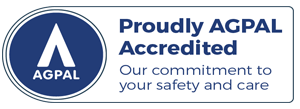
By Bee Osborne, Naturopath
With the Bureau of Statistics revealing 75% of Australians experience stress related health effects, it is clear that stress has become a part of the modern human experience. Of those polled 51% said they were not seeking help to address their stress and the most common coping mechanism for stress according to 86% of Australians was watching TV. With stress having substantial adverse physical and mental health affects, such as increase in hypertension, heart disease, anxiety and depression creating healthy stress management techniques can make all the difference.
No one likes feeling stressed out, a natural response to feeling overwhelmed is to form habits to help us cope, such as watching television, eating chocolate or drinking a glass of wine. These habits may help relax us in the moment, but do little to benefit us long-term. In clinical practice I often say to my patients if we want to improve our tolerance to stress creating a stress toolbox, as well as identifying our specific stress signals so we know when to use these tools will increase our resilience substantially.
Learning to recognise stress signals early
We all process stress differently so it’s important to be aware of our individual stress symptoms. Knowing what your internal alarm bells are is important so we can recognise when we are feeling the pressure and increase our stress strategies. These could be symptoms such as having a lowered tolerance, headaches, stomach pains, neck tension, trouble sleeping, there is a wide variety. It’s also good to be aware that certain times of the year (exams or holidays) will bring added stress so we can be prepared and implement strategies early.
Stress management techniques
With so many techniques available, categorising them into groups makes it easier to identify the situation that we are finding overwhelming and discern which type of technique will be the most useful.
-
Action Orientated Approaches: This includes any action that can be taken to change a stressful situation. This approach can be used when it is clear that there is something you can do that will help alleviate the amount of stress you are experiencing.
-
Implementing boundaries: Feeling like you’re doing too much? Set a boundary and say ‘No’
-
Switching off: Social media detox, we know we should do it. Try turning off the phone in the evenings, not using social media for a weekend, try a month!
-
Time management: Create a schedule, I recommend the book ‘Getting Things Done’ by David Allen if you’re not sure how to start.
-
Delegate: Where can you collaborate and delegate tasks?
-
-
Emotion-orientated approaches: this is when we change the way we perceive a stressful situation.
-
Affirmation: Can feel a bit strange but evidence shows that it works. Try “I am relaxed and calm, centred and quiet” or create one or many that sound good to you.
-
Gratitude practice: Journal 5 things you are grateful for daily
-
Celebrate the small things: Turn the big goals in to several smaller ones and celebrate crossing off each one.
-
Taking a 10-minute break: This too shall pass, have a cup of tea or go for a quick walk.
-
Practice: Build resilience by practicing patience, this could be taking the stairs, letting someone in front of you in traffic or walking the longer route home. Instead of seeing it as a nuisance we can take this opportunity to shift our mindset to instead see it as extra time that we’ve set aside for ourselves, just to enjoy the simple things.
-
Reframing: A 2013 longitudinal study found that our perception of stress matters. The study found that individuals who reported experiencing a lot of stress and held the belief that stress has negative impacts on health had a 43% increase risk in mortality variables. Therefore it is important to understand that stress is a part of life, and that not all stress is bad.
-
Connect: Talk to friends and family, ask for support or offer it.
-
-
Acceptance-oriented approaches: this is useful when dealing with a stressful situation you cannot control.
-
Diet and exercise: Making simple diet changes, such as reducing your alcohol, caffeine and sugar intake is a proven way of reducing anxiety. Another guaranteed way to reduce stress is exercise. It’s proven to also be as effective as antidepressants in relieving mild depression.
-
Meditation: Studies show just 12-minutes daily has significant benefits.
-
Sleep: A good nights sleep is fundamental for recharging and dealing with stressful situations. The exact amount of sleep needed varies for each of us, but an uninterrupted sleep of approximately 8 hours is generally recommended.
-
Self-care: Prioritise activities and hobbies that you feel are expansive, where you learn and grow.
-
Breathing exercises: Respiratory rhythm directly affects the central nervous system, therefore we can regulate our breath to decrease stress, I recommend using an app, such as calm.
With so many techniques available this is not an exhaustive list, but a place to begin. The good news is these tools are relatively simple, easy to start implementing and free, but they only work if we endeavour to consistently use them.
Experiencing stress is an uncomfortable feeling that none of us enjoy but remember stress is not abnormal or bad, what’s important is how we deal with it. If you are feeling overwhelmed and need further support there are many treatment options available for you at The Health Lodge. Learn more about our practitioners and services online or call our Client Support team on 02 6685 6445 for more information.
*This blog features the views of the writer and is for educational purposes only. The content is not intended to be a substitute for professional medical advice, diagnosis, or treatment. Always consult your doctor or other qualified health practitioners before acting on information on this article, particularly if you have a medical condition, taking medication or if you are pregnant.

